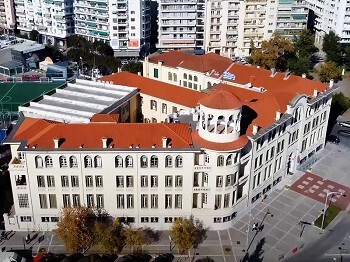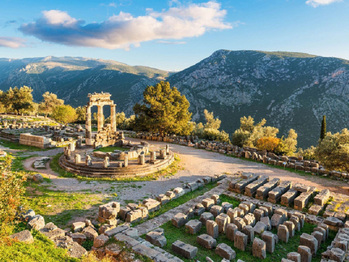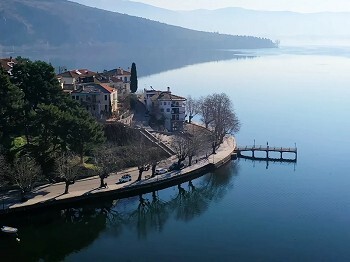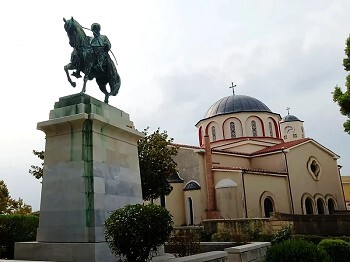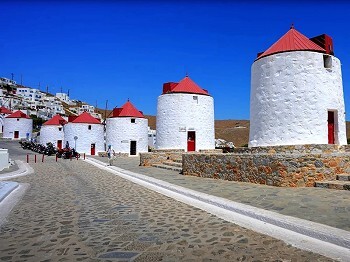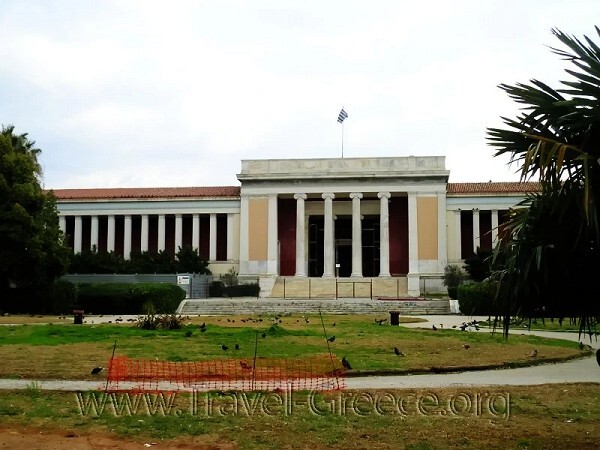
Athens, the cradle of Western civilization, is a city where history comes alive. Every corner of this ancient metropolis tells a story of a bygone era, from majestic temples to grand theaters and iconic Landmarks. In this guide, we’ll navigate through some of the most significant historical sites in Athens, offering you an immersive journey into the past.
We suggest for your stay:
Still Looking for the Perfect Stay?
The Acropolis: Athens' Iconic Citadel
No visit to Athens is complete without exploring The Acropolis, the most famous historical site in the city. Dominating the skyline, The Acropolis is home to several ancient monuments, with the Parthenon being the most prominent. This ancient Temple, dedicated to the goddess Athena, showcases the pinnacle of classical Greek Architecture.
As you Stroll through The Acropolis complex, don’t miss the Erechtheion, known for its unique asymmetrical design and the famous Caryatids—statues of women that replace traditional columns. The Temple of Athena Nike, a smaller but exquisitely preserved Temple, offers breathtaking Views of the city and the surrounding landscape.
The Ancient Agora: The Heart of Ancient Athens
Once the bustling center of public life in Athens, The Ancient Agora is a sprawling archaeological site that provides a glimpse into the daily life of ancient Athenians. As you wander through this historical marketplace, you'll encounter several important structures, including the Stoa of Attalos, which has been meticulously reconstructed and now houses The Agora Museum.
The Temple of Hephaestus, often overlooked, is remarkably well-preserved and offers insight into ancient Greek religious practices. The Ancient Agora is also home to the Ruins of various government buildings and the famed Monument of the Eponymous Heroes.

The Roman Agora: A Testament to Roman Influence
Following the Roman conquest, Athens saw the construction of The Roman Agora, a Market square that reflects the city's adaptation to Roman architectural and urban planning. Key features of this site include the Tower of the Winds, an octagonal structure that served as a clock and weather vane, and the Gate of Athena Archegetis, an impressive entrance arch dedicated to the goddess Athena.
Exploring The Roman Agora provides a fascinating contrast to the Greek architectural styles found in The Ancient Agora and Acropolis, showcasing how Roman and Greek cultures intertwined.
The Temple of Olympian Zeus: A Monument to Imperial Ambition
The Temple of Olympian Zeus, also known as the Olympieion, is one of the largest temples ever constructed in ancient Greece. Although its construction began in the 6th century BC under the tyrant Peisistratus, it was completed much later during the Roman Empire.
The temple’s colossal columns, towering over 17 meters in height, are awe-inspiring. Even in its partially ruined state, the scale of the structure offers a glimpse into the grand ambitions of ancient builders and the devotion to the king of the gods, Zeus.
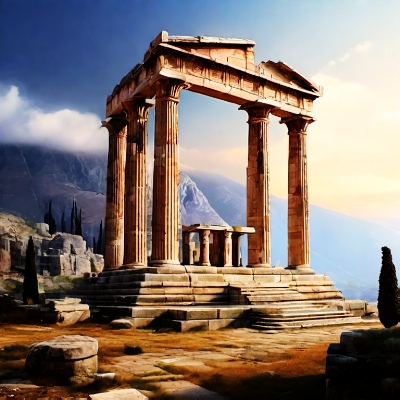
The Panathenaic Stadium: An Ancient Sports Arena
The Panathenaic Stadium, or Kallimarmaro, is a marvel of ancient engineering and the only stadium in the world built entirely of marble. Originally constructed in the 4th century BC, it was refurbished for the revival of the Panathenaic Games, a major athletic festival in honor of Athena.
The stadium has a rich history, including hosting the first modern Olympic Games in 1896. Walking through the stadium, you can almost hear the echoes of ancient athletes competing in the games, offering a vivid connection to Athens' sporting traditions.
The National Archaeological Museum: A Treasure Trove of Ancient Artifacts
For those looking to delve deeper into Greece’s rich history, The National Archaeological Museum is a must-visit. This world-renowned museum houses one of the most extensive collections of ancient Greek Artifacts, including Sculptures, Pottery, and Jewelry.
Highlights include the Mask of Agamemnon, the statue of Zeus or Poseidon, and an Extensive collection of Cycladic figurines. The museum provides invaluable context to the historical sites you visit in Athens, enhancing your understanding of ancient Greek civilization.

The Odeon of Herodes Atticus: A Roman Theater with a View
The Odeon of Herodes Atticus, often simply referred to as the Herodeion, is a stunning Roman Theater located on the southwestern slope of The Acropolis. Built in the 2nd century AD, it was used for dramatic Performances and musical concerts.
The theater’s remarkable acoustics and seating capacity of up to 5,000 spectators make it one of the best-preserved ancient theaters in Greece. Today, it hosts various Performances, allowing you to Experience the grandeur of ancient Greek Theater in a historic Setting.
The Temple of Athena Nike: Elegance in Stone
Perched on the southwest corner of The Acropolis, the Temple of Athena Nike is a small but exquisitely detailed Temple dedicated to the goddesses Athena and Nike. Built in the 5th century BC, it is an excellent example of Ionic Architecture and is renowned for its elegant proportions and intricate friezes.
The temple’s location offers stunning Views of the Athenian Acropolis and the surrounding cityscape, making it a perfect spot for reflection and admiration of ancient craftsmanship.

Exploring Athens' Historical Neighborhoods
To truly immerse yourself in Athens’ rich history, take some time to explore its historical neighborhoods. Plaka, often referred to as the "Neighborhood of the Gods," features narrow, winding streets, traditional Greek houses, and numerous small shops and Tavernas. Monastiraki, with its vibrant flea Market and Ottoman-era Architecture, offers a lively Atmosphere and a glimpse into the city’s multicultural past.
Practical Tips for Visiting Historical Sites in Athens
Wear Comfortable Shoes: Many historical sites involve walking and uneven terrain.
Stay Hydrated: Athens can be quite hot, especially in the summer months.
Respect the Sites: Follow all guidelines and rules to help preserve these ancient treasures.
Consider a Guided Tour: To gain deeper insights into the history and Significance of each site, a guided tour can be invaluable.
Athens is a city where history and modernity intertwine seamlessly. From the towering columns of The Acropolis to the quiet Ruins of The Ancient Agora, each site offers a unique window into the past. Embrace the opportunity to walk in the footsteps of ancient Greeks and Romans, and let the timeless stories of Athens captivate your imagination.








